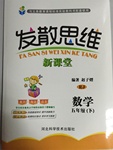题目内容
just may be an unavoidable part of growing up. And that's a good thing. These are the first steps toward independence. Even young children have to challenge their parents sometimes.

Studies have shown the following:
Learning to manage conflict is necessary for a child's development.
Conflicts during the preschool years occur because children desire more attention than parents can or
should give.
If you understand why conflict occurs,it can minimize the conflicts between you and your children.
Conflict is a child's attempt to develop a sense of self and how he or she learns to express his or her needs and ideas.Parents develop and drive this independence by putting children to the outside world both
formally and informally.
Conflict can grow out of different opinions or might just be a way to blow off steam (
 发脾气). In rare
发脾气). In rare situations, constant conflict between parents and chil
 dren can indicate a deeper emotional problem.
dren can indicate a deeper emotional problem.Consult your doctor if this seems to be your situation.
It's important to offer your child choices, which should be determined by age and developmental level.
The more responsible a child is, the more choices he or she gets in reward. You can threaten your child
with punishment,but often offering a choice will better improve angry situations.nConsequences and
rewards should have some meaning to your child.
Often a child's adverse (敌对的) reaction when he or she hears the word "no" can be avoided by
giving the child
 an explanation as to why you have refused his or her request.
an explanation as to why you have refused his or her request.B. teachers
C. parents
D. children
B. children behave politely
C. parents control their feelings well
D. parent
 s understand their children
s understand their childrenB. get tired of staying at home
C. be worried by the outside world
D. want to avoid going to school
B. doesn't really mean a deep emotional problem
C. is an important choice
D. involves visiting doctors
B. Children enjoy giving their opinions by challenging their parents.
C. Most parents would rather punish their children than reward them.
D. Communication can reduce conflict between parents and children.

 发散思维新课堂系列答案
发散思维新课堂系列答案
| |||||||||||||||||||||||||||||||||||||||||||||